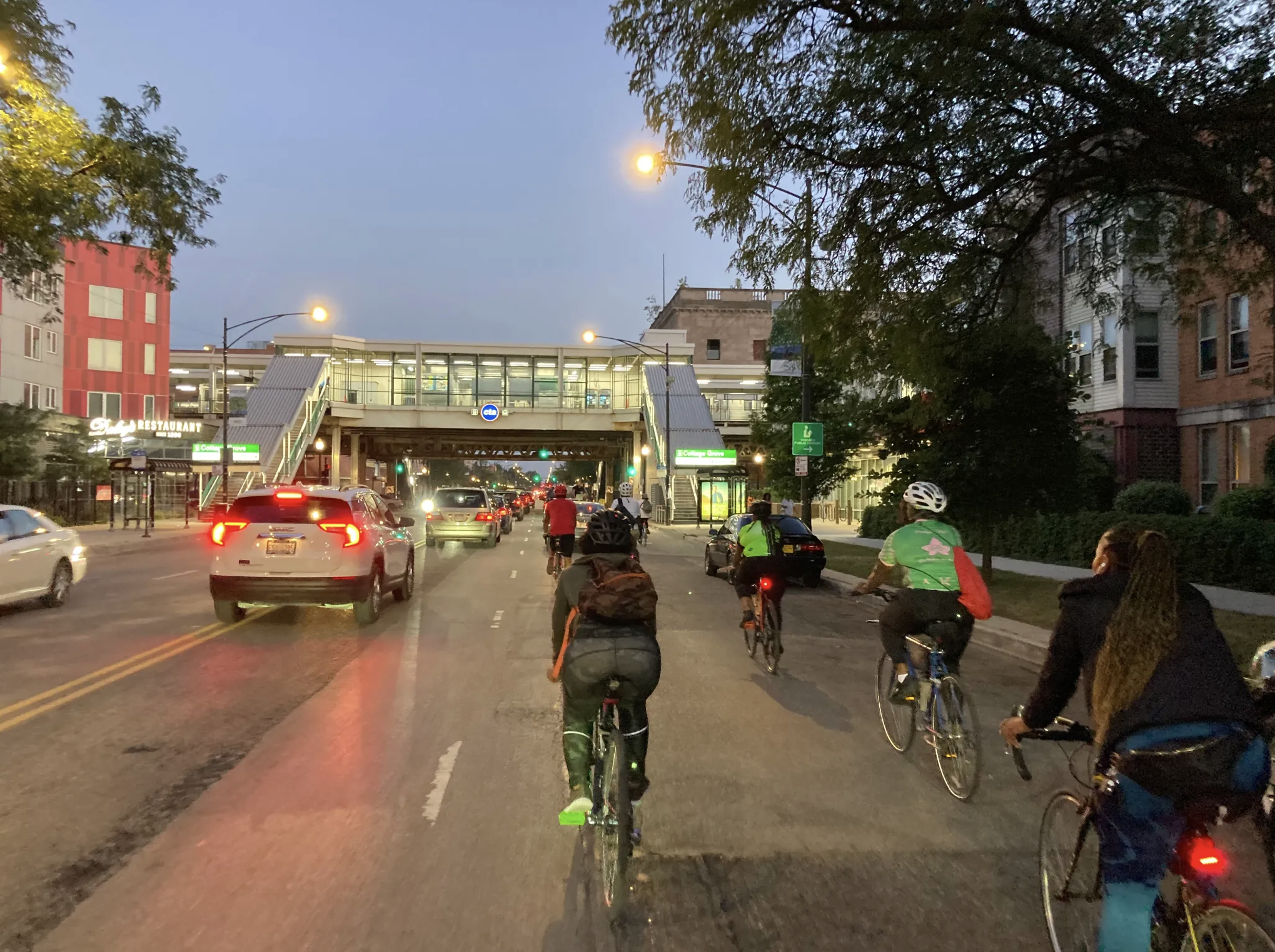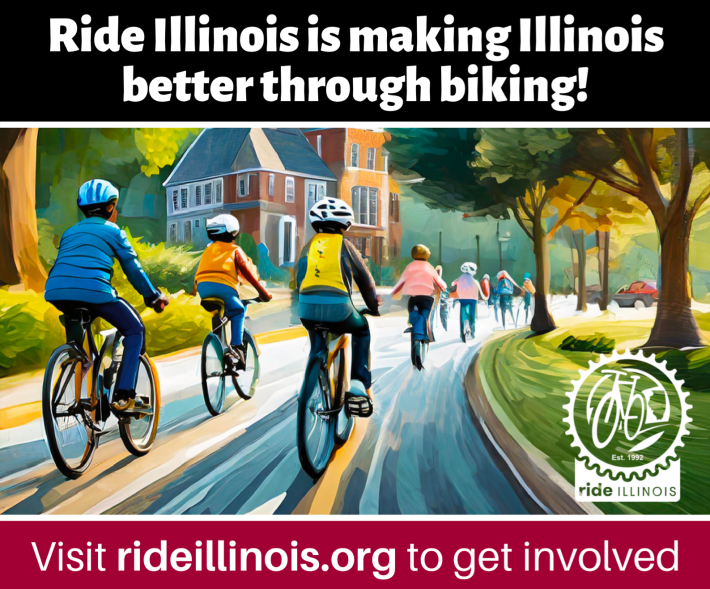
Last week, the mobility justice nonprofit Equiticity hosted the event "Claiming Our Space: Powering an Equitable Future" with the intention of introducing participants to "the breadth of our vision, mission, philosophies, and work." According to the organization, "Equiticity's 2025 signature event is an immersive, two-day convening designed to center Black, Brown, and Indigenous leadership, celebrate community power, and advance critical conversations and actions."
The first half of the gathering was a dinner and awards ceremony held on Friday, September 12, at the Chicago Marriott Downtown, 541 North Rush St. The next day, there were supposed to be two "Community Mobility Rituals," walking and bike tours starting from South Side Sanctuary, 4702 South King Dr., but unfortunately those were cancelled because of uncooperative weather.
The downtown event started with a book signing for "Arrested Mobility: Overcoming the Threat to Black Movement" by Charles T. Brown of Equitable Cities LLC. His company describes itself as "an urban planning, public policy, and research firm working at the intersection of transportation, health, and equity."
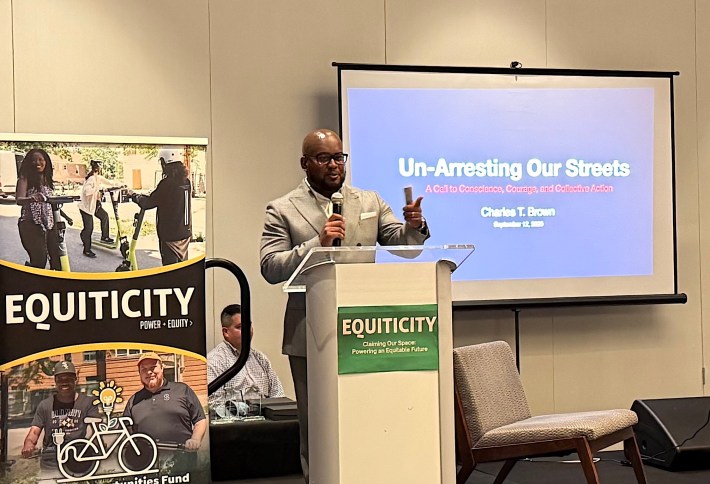
After that there was the program and awards ceremony. The master of ceremonies was Malcom Glenn, the founder of MG Equity Consulting. That's a firm that helps organizations embed principles of equity. When discussing Black, Brown, and Indigenous communities, Glenn noted that the current political situation was this feel like one of the most challenging times of their lives.
"Right now in this city, armed agents, at the direction of the president of the United States, are targeting members of our community because of their race," Glenn said. "In actions endorsed by the United States input, let's just call it what it is, political violence is becoming shockingly and embarrassingly commonplace in this country, and we're reckoning with the presidential administration that doesn't attempt to hide behind this racism. People call that racism a badge of honor. And it is against that backdrop that I think it's so imperative to appreciate the simplicity, the importance, frankly, the radicality of Equiticy's mission to operationalize racial equity, not as a talking point, but as a true and real practice.
After Glenn was done speaking, he introduced Sarah Myers, the Chief of Community Engagement for Mayor Brandon Johnson. Myers spoke on behalf of the mayor, who was unable to attend because he was hosting the 10th anniversary of the Dyett High School Hunger Strike. "But he also thought it very important to have somebody come here this evening, because he remains deeply dedicated to ensuring that all residents, especially those in Black and Brown communities, have equal opportunities, experience racial equity, and benefit from policies that enable our communities, particularly historically marginalized communities."
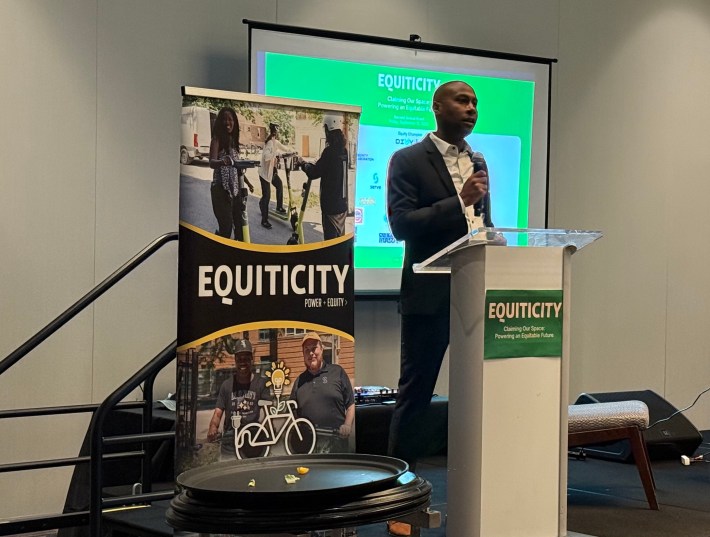
After Glenn, Charles T. Brown gave the keynote speech. One of the places he discussed was a ward in New Jersey, where he visited the community to ask what changes people wanted to see in the future. They mentioned bike lanes, facade improvements, trees, and more.
"So we do this work not just for the sake of the environment, we do this work for people," Brown said. "And with that in mind, I want you to know that it's no secret that urban planning, transportation decisions have been weaponized as a tool of oppression within our society. I say that because all you have to do is look at the highway robbery that has taken place here and elsewhere around the country. But it's not enough to just stop there. We also have to see the connection between how it treats our environment, these very transportation decisions that we make."
After that, Brown joined Equiticity founder and CEO Olatunji Oboi Reed for a fireside chat. Samantha Roxas, a founding partner of Common Good Strategies public affairs consulting company, hosted the chat. At one point, Roxas discussed the reasons behind the work she, Brown and Reed do for the people, including stories that have stuck with them or organizations that need their partnership, as well as individual people who have been impacted. Reed shared a story about his work in the North Lawndale neighborhood and one of the first organizations that he connected with, Boxing Out Negativity.
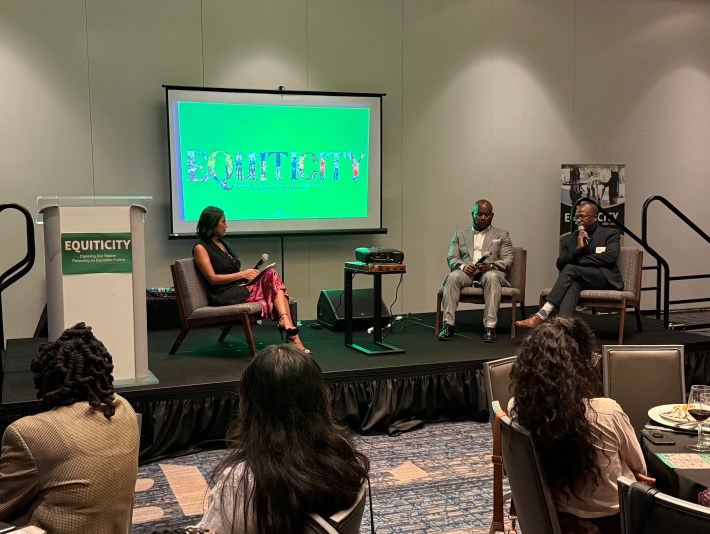
"When I first moved to North Lawndale, they came to me and said, 'We want to do a ride,'" Reed said. "And I co-founded Slow Roll Chicago. I was focused on Equiticity, and I didn't want to be known as the bicycle person anymore. So I was trying to avoid that work. And they came and said, 'Look, we want to do a ride.' I said, 'y'all pulling me back in. The harder I try to come out, you're pulling me back in.' And we organized a beautiful ride, and it transformed me to come back to a cyclic space and come back to the mobility space. And I'm proud to say I think maybe five years later, that organization is now hosting two annual rides in North Lawndale, and the work they're doing is tremendous. And I just want to say you all inspired me to keep doing this work."
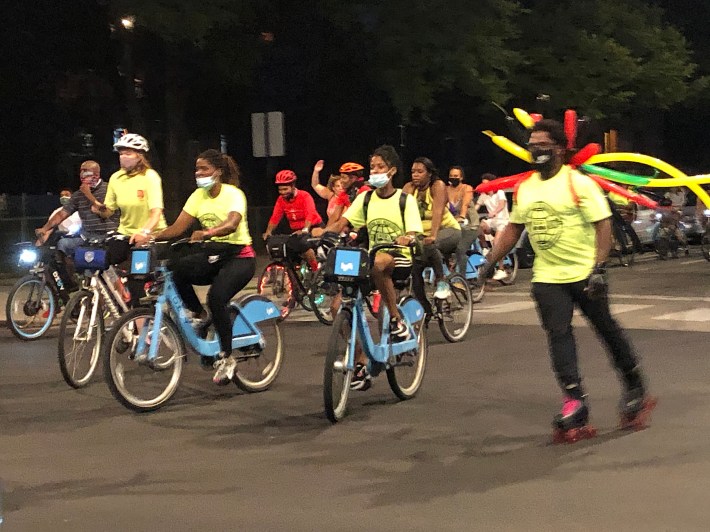
The final part of the presentation was an awards ceremony where multiple people were honored. These include Ald. Monique L. Scott (24th), a native of North Lawndale, who "strives to continue building a better Westside for the hardworking and compassionate residents of the 24th Ward." Also honored was Anton Seals Jr., who leads Grow Greater Englewood, described as "a multidimensional servant leader, organizer, entrepreneur, educator, community and political strategist and Impact producer." And lastly, there was Julián Lazalde, the Program Manager of Policy & Advocacy at Healthy Communities Foundation.
Overall, "Claiming Our Space" highlighted the importance of mobility justice issues, and how much the participants value Equiticity's crucial advocacy work.
Learn more about "Claiming Our Space" and its participants on the Equiticity website.

Do you appreciate Streetsblog Chicago's paywall-free sustainable transportation reporting and advocacy? We officially ended our 2024-25 fund drive in July, but we still need another $43K+ to keep the (bike) lights on in 2026. We'd appreciate any leads on potential major donors or grants. And if you haven't already, please consider making a tax-deductible donation to help us continue publishing next year. Thanks!
